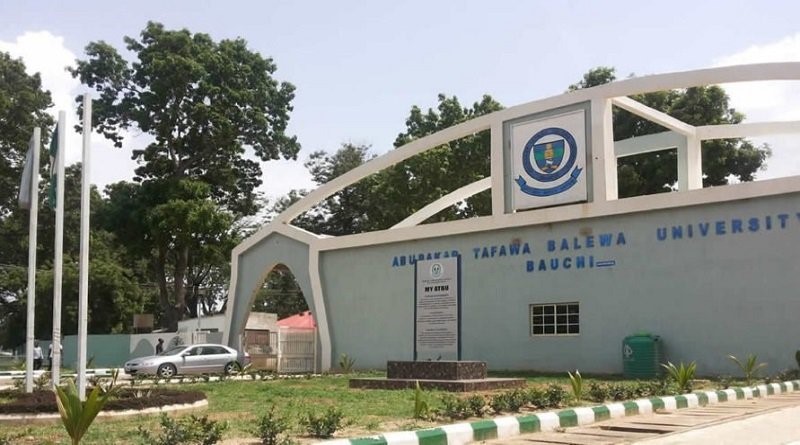In this post we take a look at the Joint Admissions and Matriculation Board popularly referred to as JAMB and also highlights its functions in the educational system of Nigeria.
The Joint Admissions and Matriculation Board(JAMB) was established in 1978 with the responsibility of ensuring a uniform standard for the conduct of matriculation examination and placement of suitable candidates into the nation’s Universities but shortly after, the law that brought JAMB into existence was amended in order to add the conduct of monotechnics, polytechnic and college of education matriculation examination so as to tackle issues of lack of standards and uniformity in admission processes, multiple application by students which led to multiple admissions for some candidates and deprived others of the opportunity to gain admission into tertiary institutions.
Tertiary Education refers to education gotten after secondary education. Such education can be gotten in universities, polytechnic, monotechnics , college of education and other institutions offering correspondence courses.

JAMB is responsible for conducting Unified Tertiary Matriculation Examination (UTME) into all form of tertiary institutions in Nigeria.
In the past matriculation examination into universities (UME) used to be held separately from that of monotechnics, polytechnic and college of education (MPCE) but in a bid to save time, cost of operation and give every candidate equal opportunity to gain admission into any school based on their academic performance. JAMB revamped the examination practice and joined both exams together to form Unified Tertiary Matriculation Examination (UTME). UTME helps JAMB establish a fair method of selection for admission and helps create an equitable distribution of available space in tertiary institutions.
FUNCTIONS OF JAMB IN THE NIGERIAN EDUCATIONAL SYSTEM
1. Conducting of UTME
JAMB is responsible for conducting Unified Tertiary Matriculation Examination (UTME) which possesses a cut off mark and acts as a requirement for gaining admission into all the tertiary institutions in Nigeria. JAMB also conducts appointment of examiners, moderators, invigilator, members of the subject panels and other personnel essential for the smooth conduct of the examination. Candidates who want to pass the exam are advised to practice jamb cbt software with thier computer or phone.
The board also employs various strategies to combat examination malpractice such as use of National security agency and Civil Defence Corps(NSCS), independent monitors e.t.c
2. Ensure Eligibility of Candidates seeking Admission into Tertiary Institutions
JAMB helps to ensure candidates seeking admission into tertiary institutions are eligible by fielding the following qualifications and it’s equivalent as part of its requirements for participation in the UTME exams and also to gain admission into tertiary institutions.
- The West African School Certificate (WASC) issued by The West African Examination Council (WAEC)
- The Senior Secondary School Certificate (SSCE) issued by The National Examination Council (NECO)
- The National Technical Certificate or the National business Certificate (NTC /NBC) issued by The National Business and Technical Examinations Board (NABTEB)
- Teacher’s Grade II Certificate
Candidates who have sat or are scheduled to sit for examinations issuing any of these qualifications in the year of application may also sit for the UTME.
3. Structuring of The Unified Tertiary Matriculation Examination
JAMB is responsible for fixing the venue and date of the UTME exam, it’s frequency, the mode of the test (CBT or paper based), the duration and general subjects for all candidates.
4. Creation of Admission Requirements
JAMB works alongside other academic bodies to create requirements such as five/four relevant subjects and cut off marks to distinguish students suitable for universities from others and as well to ensure the intellectual property of students seeking admission into tertiary institutions is up to standard.
5. Syllabus Development and Review
JAMB constantly develops and review the syllabus for its UTME in conjunction with the Nigerian Educational Resource Development Centre (NERDC) and other stakeholders to ensure the syllabus remains relevant and meets the current educational needs. The syllabus helps candidates to prepare for the UTME exams and also gives students a guide on things they ought to know in order to pass their exams.
6. Brochure Review and Development
JAMB is involved in collaborative efforts with tertiary institutions for the formulation of brochure which contains necessary information on all courses run by tertiary institutions in Nigeria. The essence of this practice is to give students useful information to aid the process of course selection, help them make the best choice of institution and increase the likelihood of participants gaining admission into institutions of their choice.
7. Collection and Dissemination of Information Regarding Admission into Tertiary Institutions.
JAMB is responsible for the collection and dissemination of lnformation on all matters regarding admission into tertiary institutions in Nigeria. JAMB periodically visit tertiary institutions to ensure compliance with the decisions made by JAMB , Nigeria University Commission (NUC) ,National Commission for Colleges of Education (NCCE) and National Board of Technical Education (NBTE) regarding admission. Information such as admission letter is also issued by JAMB to participants who successfully gained admission.
8. Placement of Students into Tertiary Institutions
JAMB is responsible for the placement of qualified students into tertiary institutions having taken into account each of the following factors:
- Vacancies in each tertiary institution.
- Guidelines approved for each tertiary institutions by its proprietor or other competent authority.
- The preference expressed or otherwise indicated by candidates for certain tertiary institutions and courses.
JAMB also carry out placement of direct entry admissions for certain categories of candidates who don’t need to go through the selection examination (UTME). This are candidates who possess higher entry qualifications such as Advanced Level Certificates, Nigeria Certificate in Education (NCE), National Diploma (ND), Higher National Diploma (HND), First Degree, etc. Nonetheless they must satisfy the normal general entry requirements as a pre-requisite for admission. Students in this category are admitted into the second year (200 level) in the universities.
9. Equity of Educational Opportunities
JAMB ensures that every child can learn and is provided with equal opportunities to do so irrespective of their background, language, gender, disability, religion e.t.c. JAMB gives equal opportunities to different categories of person and monitor the admission of students to ensure that tertiary institutions do not do otherwise.
10. JAMB serves as a Catalyst of Tertiary Education in Nigeria
JAMB serves as a catalyst to achieving the goals of tertiary education in Nigeria. JAMB plays this role by putting in effort to make sure only qualified candidates who have shown to be sound academically are given admission into tertiary institutions in Nigeria. The goals of tertiary education includes:
- To produce students with physical and Intellectual skills which will help them be relevant and useful members of the society.
- To develop and inculcate proper values for survival into students.
- To contribute to national development through high level relevant manpower training.
- To produce graduates imbibed with good discipline and ready to utilize theoretical knowledge in real life situation to achieve success



![UNILAG HRDC Application form 2024/2025 [Advanced Diploma, Diploma & Professional Certificate courses] UNILAG HRDC Application form 2024/2025 [Advanced Diploma, Diploma & Professional Certificate courses]](https://infoguidenigeria.com/wp-content/uploads/2021/08/UNILAGOS.jpg)